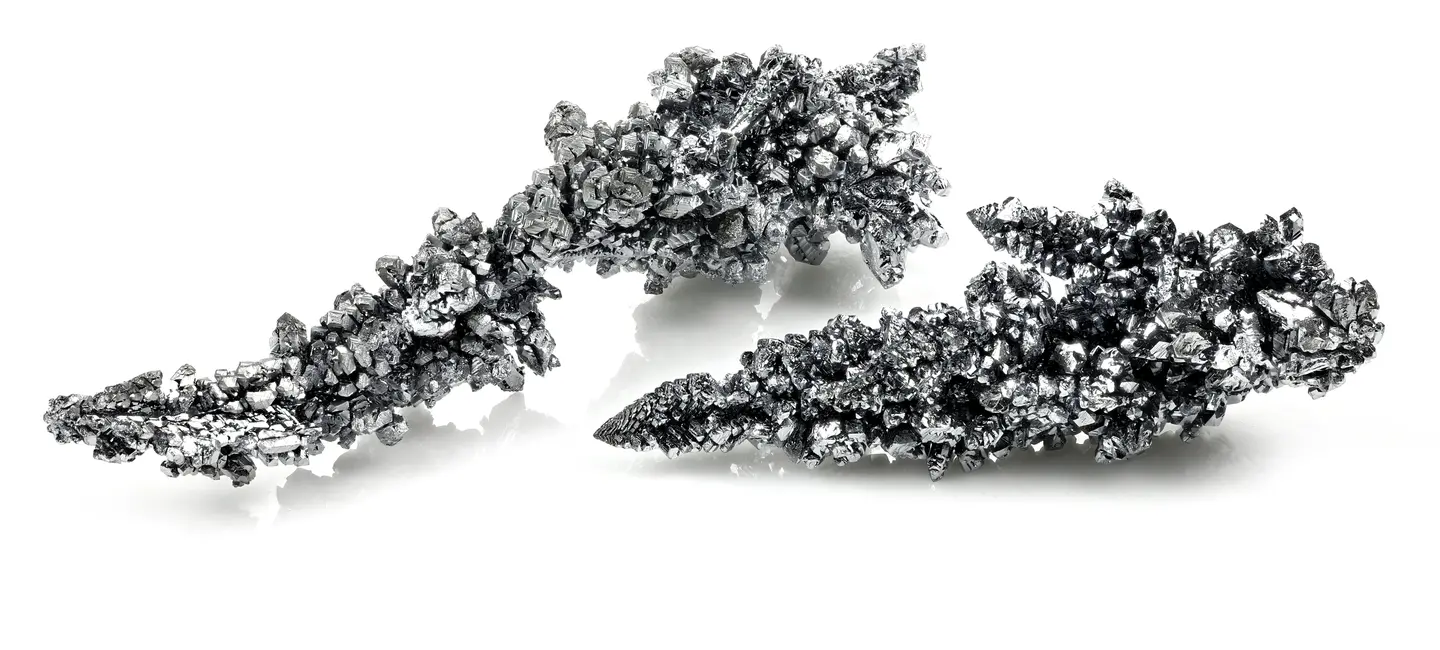
Vanadium is a trace mineral regularly consumed in the diet. It's found in mushrooms, shellfish, black pepper, parsley, grains, and also drinking water.
Vanadium might act like insulin or help to increase the effects of insulin.
People use vanadium for preventing vanadium deficiency. It is also used for prediabetes, diabetes, athletic performance, cancer, and many other purposes, but there is no good scientific evidence to support these uses.
Is It Effective?
NatMed Pro rates effectiveness based on scientific evidence according to the following scale: Effective, Likely Effective, Possibly Effective, Possibly Ineffective, Likely Ineffective, Ineffective, and Insufficient Evidence to Rate.
- Vanadium deficiency. Taking vanadium by mouth prevents vanadium deficiency, a condition in which the body doesn't have enough vanadium.
There is interest in using vanadium for a number of other purposes, but there isn't enough reliable information to say whether it might be helpful.
Is it Safe?
When taken by mouth: Vanadium is commonly consumed in foods. It's likely safe when used in amounts less than 1.8 mg daily. Vanadium is possibly unsafe when used in higher amounts. Higher doses might cause stomach discomfort, diarrhea, nausea, problems with the nervous system, and kidney damage.
Special Precautions & Warnings:
Pregnancy: Vanadium is commonly consumed in foods. But taking vanadium as medicine during pregnancy is possibly unsafe. Having higher levels of vanadium in the body while pregnant might slow the growth of the fetus and cause other serious side effects. Stay on the safe side and stick to food amounts.
Breast-feeding: Vanadium is commonly consumed in foods. But there isn't enough reliable information to know if vanadium is safe to use as medicine while breast-feeding. Stay on the safe side and stick to food amounts.
Children: Vanadium is commonly consumed in foods. But there isn't enough reliable information to know if vanadium is safe to use as medicine in children.
Kidney problems: Vanadium might harm the kidneys. If you have kidney disease, don't use vanadium supplements.
Surgery: Vanadium might lower blood sugar and interfere with blood sugar control during and after surgery. It might also thin the blood and increase the chance of bleeding during and after surgery. Stop taking vanadium at least 2 weeks before a scheduled surgery.
Medications for diabetes (Antidiabetes drugs)
Interaction Rating=Moderate Be cautious with this combination.
Vanadium might lower blood sugar levels. Taking vanadium along with diabetes medications might cause blood sugar to drop too low. Monitor your blood sugar closely.
Medications that slow blood clotting (Anticoagulant / Antiplatelet drugs)
Interaction Rating=Moderate Be cautious with this combination.
Vanadium might slow blood clotting. Taking vanadium along with medications that also slow blood clotting might increase the risk of bruising and bleeding.
Herbs and supplements that might lower blood sugar: Vanadium might lower blood sugar. Taking it with other supplements with similar effects might lower blood sugar too much. Examples of supplements with this effect include aloe, bitter melon, cassia cinnamon, chromium, and prickly pear cactus.
Herbs and supplements that might slow blood clotting: Vanadium might slow blood clotting and increase the risk of bleeding. Taking it with other supplements with similar effects might increase the risk of bleeding in some people. Examples of supplements with this effect include garlic, ginger, ginkgo, nattokinase, and Panax ginseng.
There are no known interactions with foods.
Vanadium is a trace mineral that is regularly consumed in the diet. It's found in mushrooms, shellfish, black pepper, parsley, grains, and also drinking water. An average diet provides 6 to 18 mcg vanadium daily.
As medicine, there isn't enough reliable information to know what an appropriate dose of vanadium might be. Keep in mind that natural products are not always necessarily safe and dosages can be important. Be sure to follow relevant directions on product labels and consult a healthcare professional before using.
Atomic number 23, Chélate de Vanadium, Chelated Vanadium, Metavanadate, Métavanadate, Orthovanadate, Pentoxyde de Vanadium, Quelato de Vanadio, Sulfate de Vanadyl, V, Vanadate, Vanadio, Vanadio Quelado, Vanadium Ascorbate, Vanadium Chelate, Vanadium Chélaté, Vanadium Pentoxide, Vanadyl, Vanadyl Nicotinate, Vanadyl Sulfate, Vanadyl Sulphate.
Information on this website is for informational use only and is not intended to replace professional medical advice, diagnosis, or treatment. While evidence-based, it is not guaranteed to be error-free and is not intended to meet any particular user’s needs or requirements or to cover all possible uses, safety concerns, interactions, outcomes, or adverse effects. Always check with your doctor or other medical professional before making healthcare decisions (including taking any medication) and do not delay or disregard seeking medical advice or treatment based on any information displayed on this website.
© TRC Healthcare 2024. All rights reserved. Use and/or distribution is permitted only pursuant to a valid license or other permission from TRC Healthcare.
